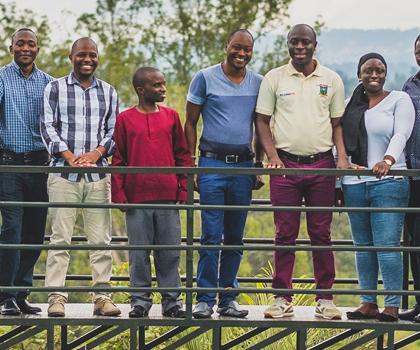Kenya (The International Centre of Insect Physiology and Ecology) Nigeria Invests US$4million in PASET’s Regional Scholarship and Innovation Fund

NAIROBI, November 14, 2022 — On November 3, the Government of Nigeria has announced a contribution of US$4million, through the World Bank-funded Africa Higher Education Centers of Excellence for Development Impact Project (ACE-Impact), to the Partnership for Skills in Applied Sciences, Engineering and Technology’s (PASET) Regional Scholarship and Innovation Fund (RSIF). The RSIF is managed by the International Centre of Insect Physiology and Ecology (icipe), which is its Regional Coordination Unit.
The amount allocated will help facilitate advanced training to 32 Nigerian PhD students and eight other students from Sub-Saharan Africa (SSA). These graduates are expected to return to work at African universities and research institutions and to contribute to national and regional economic growth. RSIF also prioritises the advancement of African women in science careers. The agreement between the Federal Government of Nigeria and icipe was signed on 1st September 2022.
“PASET’s RSIF recognizes the importance of harnessing regional economies of scope and scale, by championing a regional approach that complements individual country efforts.” Prof. Aminata Sall Diallo, Executive Director, PASET Executive Board.
Nigeria joins eight other African countries as contributing members of PASET. The eight countries are Benin, Burkina Faso, Cote D’Ivoire, Ghana, Senegal, Rwanda, Kenya, and Mozambique. PASET members, together with the World Bank, the Government of Korea, and the European Union, have now contributed US$54.7 million towards the RSIF for building technical and scientific capacities in Africa. The RSIF program supports PhD training, university capacity building, and a competitive grants system for research and innovation within high quality international research networks. Its work builds high level skills in new areas in which science and innovation is needed to stimulate economic growth.
“The investment in PASET’s RSIF will help diversify Nigeria’s growth prospects and create a highly skilled workforce to respond to the country’s development needs.” Dr. Joshua A. Atah, National Universities Commission, Nigeria.
The RSIF design benefits from a network of 22 advanced international partner research institutions across the globe and 15 African host universities that provide access to state-of-the-art research equipment and research mentors, among others, for PhD students and African faculty. Students spend between 6-24 months of their training at these advanced research institutions.
“Africa’s growth will depend on the increased application of high-quality science that links directly to the needs of producers and the private sector in Africa. icipe’s experience in postgraduate training, research and innovation, has been critical to growing the Regional Scholarship and Innovation Fund.” Dr. Segenet Kelemu, Director General and Chief Executive Officer, icipe.
To date, 291 PhD scholarships have been awarded to nationals of 24 Sub-Saharan African countries to undertake PhD training and research in five priority areas: food security and agribusiness; climate change; energy; ICTs including robotics, artificial intelligence, and big data; mines and minerals, and materials science. Over 95 high quality research papers have been published by RSIF PhD students and eight RSIF students have since graduated and gone back to their home institutions to take up positions at African research and training institutions, demonstrating that the model works. To improve the sustainability of the program, RSIF also aims to establish a US$0.5 billion permanent fund to accelerate sustainable quality PhD training on the continent.
“The World Bank recognizes that higher education provides some of the strongest rates of returns to investments. No country has developed without investing in its higher education and research sectors. The PASET and RSIF approach has tremendous value for the region, particularly in ensuring that graduates are relevant and remain within the region.” Dr. Scherezad Joya Monami, Education Practice Manager, Western and Central Africa, World Bank.
For more information: visit www.rsif-paset.org | Kindly sign up to our newsletter for RSIF news.
NOTE TO EDITORS
The International Centre of Insect Physiology and Ecology (www.icipe.org), headquartered in Nairobi, Kenya, is the only research institution in Africa working primarily on insects and other arthropods. icipe’s mission is to ensure better food security, health and livelihoods in Africa, by producing world-class knowledge and then developing solutions that are environmentally friendly, accessible, affordable and easy-to-use by communities. These objectives are delivered through four thematic areas – human health, animal health, plant health and environmental health, resulting in a unique framework to tackle the interlinked problems of poverty, poor health, low agricultural productivity and environmental degradation in a comprehensive manner. In July 2018, icipe was competitively selected and appointed by the World Bank and PASET as the Regional Coordination Unit (RCU) of RSIF. Its mandate includes overall coordination, planning, management and monitoring and evaluation of RSIF activities. Specifically, icipe is coordinating capacity strengthening of selected African universities and partnering institutions in PhD training, research, and innovation in PASET priority sectors. In addition, icipe facilitates the creation of partnerships with governments, universities, and national and international research organizations, for example, through sandwich training and collaboration with centres of research excellence. Furthermore, icipe introduces African governments and other potential strategic partners to PASET, with the aim of growing RSIF and ensuring continued continent-wide reach and support.
The Partnership for skills in Applied Science, Engineering and Technology (PASET) was launched in 2013 by the governments of Senegal, Ethiopia and Rwanda with facilitation by the World Bank. It aims to address systemic gaps in skills and knowledge in sub-Saharan Africa’s priority ASET fields, and to build the capacity of African education and training institutions to train high-quality technicians, engineers and scientists to meet the demands of the economy. Since 2013, more than 20 African countries, as well as representatives of Brazil, China, India, Singapore and Korea have participated in PASET’s various activities. PASET is currently led by the education and higher education ministries of Benin, Burkina Faso, Côte d’Ivoire, Ethiopia, Ghana, Kenya, Mozambique, Nigeria, Rwanda, Senegal and Tanzania, along with Korea and the World Bank. The PASET governance bodies, comprising the PASET Governing Council (GC) and the PASET Executive Board (EB) provide strategic direction for implementation of the RSIF project by the Regional Coordination Unit (RCU). The GC is responsible for the overall strategic direction and vision of the RSIF, while the EB interacts with the RCU more regularly, monitoring the regular progress of activities and providing overall guidance. The PASET Consultative Advisory Group provides guidance to the GC and EB on regional priorities, goals and technical aspects of the RSIF.
The Regional Scholarship and Innovation Fund (RSIF) is the flagship program of PASET, an initiative by African governments to address systemic gaps in skills and knowledge necessary for long-term, sustained economic growth in sub-Saharan Africa (SSA). RSIF aims to support PhD training, research and innovation in African universities that are selected as centres of excellence in fields identified by PASET as priority economic sectors for growth and development: ICTs including big data and artificial intelligence; food security and agribusiness; minerals, mining and materials engineering; energy including renewables; and climate change. A competitive grants scheme, RSIF has two components: (i) the general fund, which supports PhD training, research and innovation projects annually and (ii) the permanent or endowment fund, with proceeds going to the general fund. Students from SSA countries, primarily faculty of SSA universities lacking PhD degrees, are eligible for RSIF scholarships. RSIF builds capacity in the region to sustainably support those PhD scientists beyond their training as they go into academia, industry, or become entrepreneurs. The RSIF operates through three windows: Window 1 offers scholarships for PhD students and capacity building for RSIF African Host universities; Window 2 offers research grants and Window 3 offers innovation grants. RSIF focuses on transformative technologies that have a far-reaching positive impact on society.
